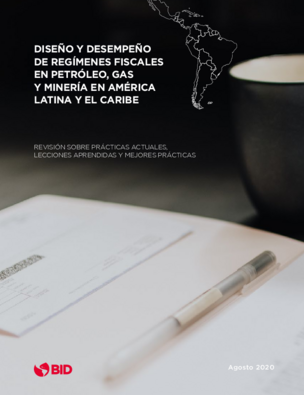Design and Performance of Mining and Petroleum Fiscal Regimes in Latin America and the Caribbean: Survey of Current Practices, Lessons Learned and Best Practices
Date
Aug 2020
This report reviews the taxation of oil, gas, and mining sectors by the governments of the major Latin American and Caribbean producing countries. It finds the fiscal regimes in place to be complex and widely divergent in terms of form and structure. The report describes how most of the existing regimes tend to unintentionally discourage investment, limit production, and create deadweight losses that impede the governments ability to realize the full value and benefits of their resource endowments. These conclusions are based on an analysis of deadweight losses using a model of resource exploration and development that recognizes and incorporates investors likely reactions to various fiscal provisions in the attempt to maximize private operator value via the minimization of the burden of taxation. This behavioral approach to the investors reaction to taxes is designed to identify potential distortions to the plan of exploitationdistortions that may to some extent impair benefits (revenues, jobs, production) that the government would hope to capture through the fiscal regime.




